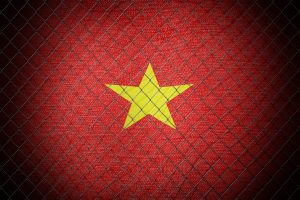When leaders change in autocratic countries, hopes are raised in the West that a new chief at the helm will signal a shift in attitudes toward transparency and fairness, along with a relaxation of the hard lines imposed by their predecessors.
That was the case with North Korean leader Kim Jong Un when he came to power in 2011 and Cambodian Prime Minister Hun Manet when he assumed office just over a year ago. Both inherited their positions from their fathers, so any expectations for change were fanciful.
Even Xi Jinping enjoyed an extended period of grace after assuming the position of president of China in March 2013. For at least two years the Western press were gushing in their reports, hopeful that the world’s biggest market would continue its forward march into the 21st century.
As The Economist noted in September 2014: “He pets calves, cups babies’ cheeks and kicks footballs. He laughs and smiles in public. He holds his own umbrella, shuns a limousine, carries his own bowl of dumplings to a restaurant table and sits crossed-legged in a farmer’s hut.”
That feel-good hype has never been the case in Vietnam, where journalist Nguyen Vu Binh, 56, was jailed for seven years on Tuesday for conducting propaganda against the state after he criticized the Communist Party of Vietnam (CPV) through a YouTube post.
His conviction – for making, storing, disseminating, or propagating information, documents, and items with fabricated content, causing confusion among the people – followed a charge under the widely criticized Article 117, which is seen as a catch-all clause to suppress dissidents.
Importantly, his conviction was registered less than three months after To Lam assumed Vietnam’s presidency and just six weeks after his election as general secretary of the CPV, following the death of his predecessor, Nguyen Phu Trong.
Radio Free Asia (RFA) – where Binh worked until his arrest – PEN International, the Committee to Protect Journalists, and HRW were among the many to quickly condemn the guilty verdict, with PEN noting Binh’s case warrants swift attention by the international community.
Additionally, rights groups say Vietnamese police arrested at least 269 people on similar offenses when Lam was head of the Ministry for Public Security between April 2016 and May 2024.
Since then, Human Rights Watch (HRW) has counted seven people who have been sentenced for criticizing the government, including Nguyen Chi Tuyen – also known as Anh Chi – who was jailed for five years in August, after his initial detention alongside Binh on February 29.
Estimates vary, but human rights groups say there are about 170 political prisoners in Vietnam, many of them bloggers or well-intentioned citizen journalists. In other words, they are amateurs in trouble but worthy of support.
Binh, however, is not one of those. He is an experienced journalist with a resume dating back to the 1990s. He worked with the CPV’s official journal, the Communist Review, for almost a decade, then made a name for himself writing about corruption, land rights, and the environment.
Twice he received the Hellmann/Hammett writers’ award for victims of political persecution, and in 2002 he was jailed and served five years of a seven-year sentence after providing written testimony to the U.S. Congress about human rights abuses in Vietnam.
In short, Binh is a professional who deserves the backing of Western countries, and that is why he was placed firmly in Lam’s crosshairs. That is also why editorial writers are under no illusions of a honeymoon and hold a dismal view of life under Lam going forward.
Binh’s conviction shortly after Lam’s rise to power is a simple signal that more of the same is to come under his tenure. It’s been said before – at least with the Vietnamese, you always know where you stand.

































